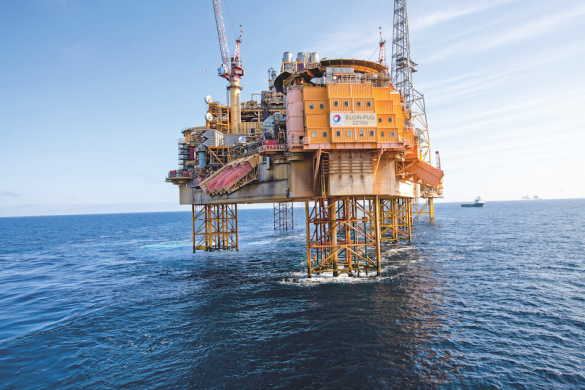KEY POINTS
- Harbour Energy is selling stakes in North Sea oilfields and may list in the U.S. due to tax hikes.
- The UK Labour government plans to raise oil and gas taxes to 78% for renewable energy funding.
- Industry leaders say new taxes and rules are making the North Sea “un-investable,” cutting investments.
Harbour Energy, a major producer in the British North Sea, is planning to sell its stakes in several oilfields and is looking at listing on a U.S. stock exchange, sources said, as companies reduce investments due to upcoming tax increases.
The Labour government, elected in July, wants to use money from oil and gas to fund renewable energy projects. Finance Minister Rachel Reeves is expected to announce the tax increases in her budget on Oct. 30.
The government is also preparing new environmental rules for oil and gas projects, which executives said could further slow down investments in the ageing North Sea. Production in the region has dropped by about 75% since its peak in the late 1990s.
Harbour has renewed plans to buy a U.S.-listed company, which would allow it to list and move its headquarters to the United States, according to sources familiar with the matter.
The search for a company was paused last year when Harbour decided to buy Wintershall Dea’s non-Russian assets for $11 billion, the sources said. That deal, completed last month, helped Harbour expand beyond the North Sea and more than doubled its production.
Harbour has also started the process of selling its stakes in the Armada, Everest, Lomond, Catcher, and Tolmount oilfields to lower its involvement in the North Sea, the sources said.
Harbour declined to comment on the sales, saying it is focused on merging with Wintershall Dea.
“We are listed in London, and as long as most of our business is in Europe, it wouldn’t make sense to change that,” a spokesperson said.
UK government to raise oil and gas taxes
UK North Sea producers first warned they would cut back on investments after the previous Conservative government introduced a 25% Energy Profits Levy in May 2022. This happened as energy prices spiked due to Russia’s invasion of Ukraine. The tax was increased to 35% in November 2022 and extended by one year in March 2024.
The current Labour government plans to raise the windfall tax to 38% from 35%, starting Nov. 1, bringing the total tax on oil and gas activities to 78%, one of the highest rates in the world. The tax will also be extended until March 2030.
The changes will end the 29% tax break that lets companies reduce taxes by reinvesting in projects.
Industry warns North Sea becoming “un-investable”
“The UK North Sea is currently un-investable. Without a reasonable tax system that encourages continued investment and offers some stability, it will remain un-investable,” Serica Energy Chairman David Latin told Reuters.
In a statement to Reuters, the finance ministry said the government is “making the UK a clean energy leader, with £24 billion ($31 billion) raised for green industries at this month’s investment summit. It is right that the oil and gas sector helps fund Great British Energy as part of this transition.”
Patrick Pouyanne, CEO of TotalEnergies, one of the largest producers in the North Sea, said earlier this month that he had told his team to stop exploring for more oil in the area, where production began in the 1960s.
“With this political situation, even if you find oil, you can’t be sure you’ll be able to develop it,” Pouyanne told analysts. “The situation in the UK is very difficult,” he added.
Private equity-backed Neo Energy said last month it would “significantly slow down investment,” and Japan Petroleum Exploration launched a process to sell its 15% stake in BP’s Seagull oil and gas field, according to Reuters.
Andrew Nunn, CEO of exploration-focused Deltic Energy, which announced on Monday that it plans to cut spending, told Reuters, “The clear message from key investors was, ‘Do not invest in the UK.’”



